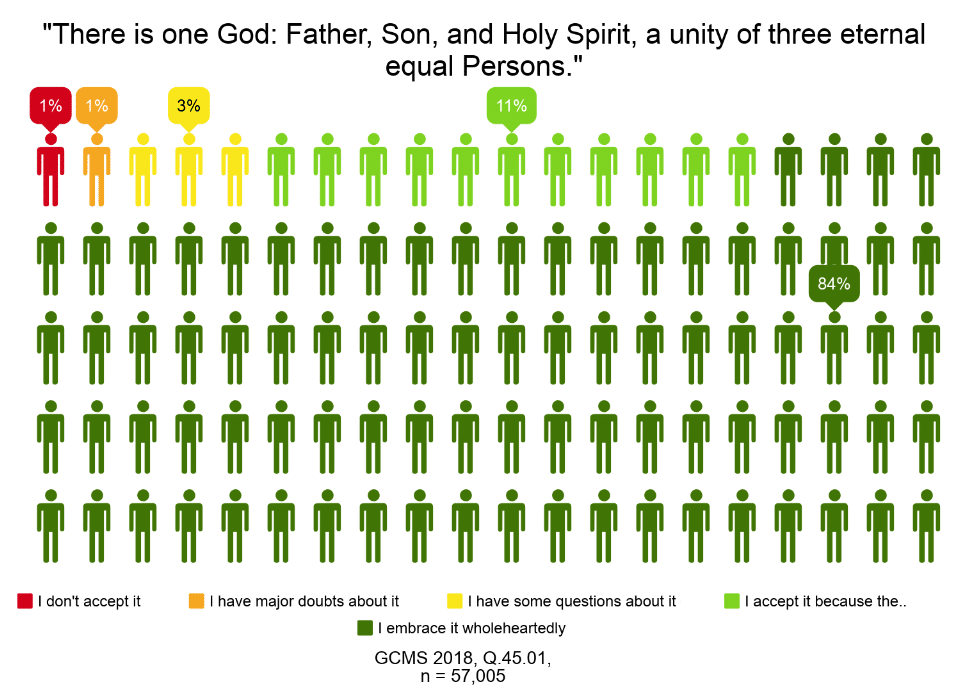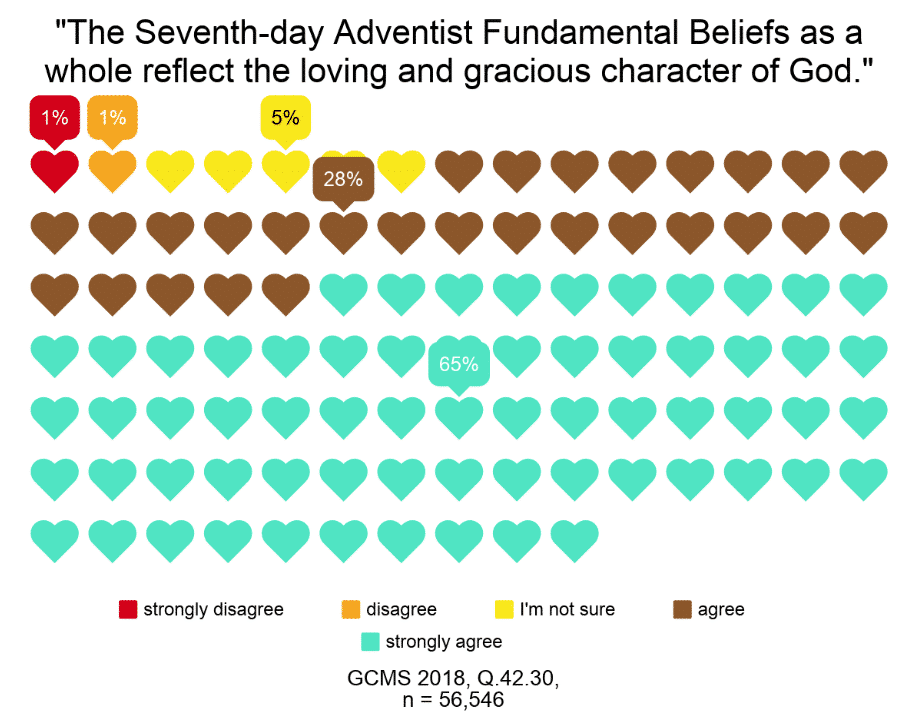The concept of the Trinity has long been debated and can honestly be confusing. Yet, in his book Mere Christianity, C. S. Lewis breaks down this complex concept, explaining the biblical concept of the Trinity beautifully; Lewis writes, “If you think of the Father as something ‘out there’, in front of you, and of the Son as someone standing at your side, helping you to pray, trying to turn you into another son, then you have to think of the third Person [the Holy Spirit] as something inside you, or behind you.”1
In the 28 Fundamental Beliefs of the Seventh-day Adventist Church, the Church’s statement on the Trinity can be found second on the list of beliefs, an indication of its utmost importance to Adventist doctrine. This statement reads:
There is one God: Father, Son, and Holy Spirit, a unity of three coeternal Persons. God is immortal, all-powerful, all-knowing, above all, and ever present. He is infinite and beyond human comprehension yet known through His self-revelation. God, who is love, is forever worthy of worship, adoration, and service by the whole creation. (Gen. 1:26; Deut. 6:4; Isa. 6:8; Matt. 28:19; John 3:16 2 Cor. 1:21, 22; 13:14; Eph. 4:4-6; 1 Peter 1:2.)2
As part of the 2018 Global Church Member Survey (GCMS), Seventh-day Adventists around the world were asked about their acceptance of this cornerstone belief (Q45.01). A vast majority (83.7%) of respondents shared that they embrace this teaching wholeheartedly. One in ten (10.8%) accept this teaching because the Church teaches it. Only a small percentage of respondents admitted that they have questions (3.1%), have major doubts (0.9%), or do not accept this doctrine (1.5%).

Part of growing to know the Godhead is to understand the role and character of each member. As Adventists, we believe in a personal God. We believe that:
- “God the Father is the source of all love and life. He sent His Son to save us from our sin and ourselves, and to show us what He is like.”3
- “Jesus became human to save us. Through Him—our helper, advocate and redeemer—we can begin again. He is preparing heaven for us and will return to take us there.”4
- “The Holy Spirit inspires us, empowers us and guides our understanding. The Spirit touches our hearts and transforms us, renewing the image of God in which we were created.”5
The 2018 GCMS asked church members worldwide if they believe that the Adventist Church’s Fundamental Beliefs truly reflect the loving, gracious character of God (Q42.30). A vast majority (92.6%) of members agreed to one extent or another that these beliefs truly reflect God’s character. About one in twenty (5.3%) were not sure, while only a tiny percent (2%) disagreed or strongly disagreed.

In order to relate to God and come to know Him, we must seek to gain a deeper understanding of His nature and character. We must pursue a knowledge of and personal relationship with all three persons of the Godhead; only then can we truly know Him.
For more data on the 2018 GCMS, look at the following presentation by Dr. David Trim from the Office of Archives, Statistics, and Research:
2018 Annual Council – Global Church Member Survey Data Report
Created in collaboration with the Institute of Church Ministry.
- Lewis, C. S. (1952.) Mere Christianity. New York, NY: Harper Collins, 174-176. [↩]
- General Conference of Seventh-day Adventists. (2019). Trinity. Retrieved from https://www.adventist.org/en/beliefs/god/trinity/ [↩]
- General Conference of Seventh-day Adventists. (2019). Father. Retrieved from https://www.adventist.org/en/beliefs/god/father/ [↩]
- General Conference of Seventh-day Adventists. (2019). Son. Retrieved from https://www.adventist.org/en/beliefs/god/son/ [↩]
- General Conference of Seventh-day Adventists. (2019). Holy Spirit. Retrieved from https://www.adventist.org/en/beliefs/god/holy-spirit/ [↩]

